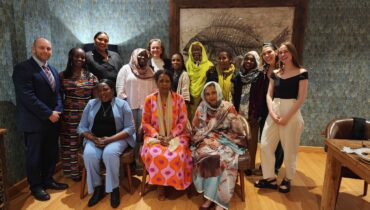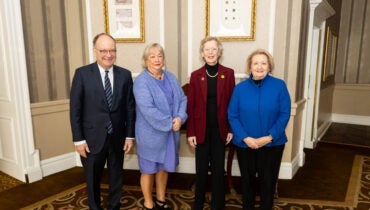This post can also be found in PDF format here.
INFORMATION2ACTION: Rapid Response
On February 2nd, South Sudan President Salva Kiir and former vice-president Riek Machar signed an agreement committing to a permanent ceasefire and outlining the future of a transitional government. Parties are scheduled to resume talks on February 19th, and the timeline agreed to in the February 2nd deal stipulates that ‘outstanding issues of conflict’ should be resolved by March 5th so that the Transitional Government of National Unity can be established no later than July 9, 2015.
Though the agreement of February 2nd is only a precursor to what will be discussed more thoroughly at continuing peace talks, it includes an outline of the mandate and structure of the transitional government; the creation of a Commission for Truth, Reconciliation and Healing to establish a record of human rights violations and investigate and prosecute individuals with the greatest responsibility for violation committed since 2013; the establishment of a Joint Monitoring and Evaluation Commission to oversee the implementation of the Agreement; and a timeline for negotiating outstanding issues. Aside from the provision for a Minister of Gender, Child and Social Welfare in the transitional government, the continuation of an existing position, there are no direct mentions of women or gender in the February 2ndagreement.
The African Union has received criticism from human rights groups for deciding to defer consideration of the AU Commission of Inquiry on South Sudan’s final report. The Commission conducted its field mission in April 2014 and submitted its report in December, but the findings have yet to be made public. The Commission’s field team included the AU’s Special Envoy for Women, Peace and Security, Bineta Diop, and conducted extensive interviews with government officials and civilians in an attempt to document abuses committed since 2013 and make recommendations for accountability. Many expect the report to include a focus on sexual violence against women and girls, which ground reports indicate is a growing scourge across the county. After a visit to South Sudan in October 2014, UN Special Envoy for Sexual Violence, Zainab Bangura, said the situation was the worst she had ever seen.
Based on public opinion research analyzed in the Institute’s 2014 publication “Security, Basic Services and Economic Opportunity in South Sudan: Perspective of Women Post-Independence and Pre-Civil War,” women in South Sudan identify poverty and unemployment as the greatest problems facing the country. Women also identified community-level security concerns, gaps in access to basic services, and exhibited a decline in trust in public institutions. As the peace process moves forward and the transitional government is formed, it is essential that women’s voices are taken into account, particularly in regards to community level concerns that affect women’s daily existence, such as access to healthcare, education or clean water; all areas they prioritized and none of which are included in the February 2nd agreement. The inclusion of diverse community perspectives in the peace process is needed to reflect the needs of the women, men and children facing the direst conditions.
A strong quota for women’s participation, both for the continued peace negotiations and in the transitional government, would ensure that a substantive portion of roles are filled by women. Though women comprise 65% of the population of South Sudan, their representation at the peace table remains low. In 2014 Voice of America reported that three delegates of ten total from the rebel group negotiations team were women, with no women represented on the government team.


